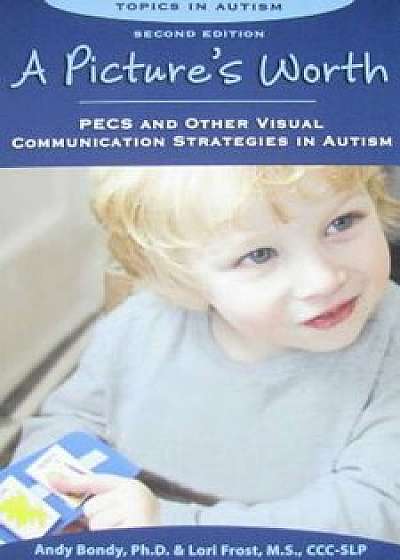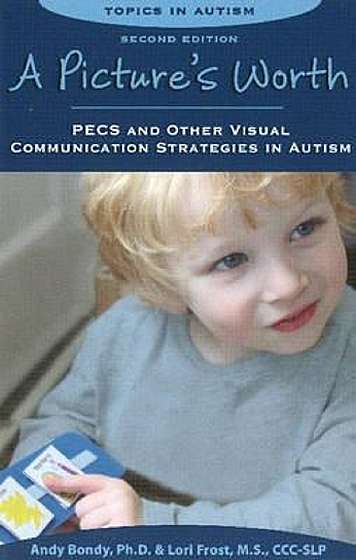
A Picture's Worth: Pecs and Other Visual Communication Strategies in Autism, Paperback/Andy Bondy
Descriere
A Picture's Worth, the PECS primer written by the developers of the Picture Exchange Communication System, is now available in a second edition. This user-friendly guide introduces PECS, a simple and empowering communication tool in which partners exchange cards with photos or line drawings representing objects, attributes, and actions. A child or adult who has delayed or no speech can easily express his basic desires (e. g., ''ice cream'') or needs using a PECS card without prompting from another. And as a person's PECS usage progresses, he or she learns to put pictures together in sentences to express desires (e. g., ''I want chocolate ice cream.''), to comment, and to ask questions. A Picture's Worth examines verbal communication development and how autism affects these skills, and shows how a child's poor communication skills can lead to problem behaviors. Providing communication options--PECS and the other augmentative and alternative communication strategies (AAC) described in the book--reduces frustration and enhances learning. This new edition cites research that proves PECS (and other AAC strategies) doesn't interfere with the development of speaking skills, and actually can provide a boost to the acquisition of these skills. There's also expanded information on: -Deciding whether a child needs AAC and could benefit from PECS -Who is an appropriate candidate for PECS -Error correction strategies during the initial stages of PECS -How to choose challenging behaviors to try to eliminate -What to do when a child does not look at pictures Thousands of people with autism and other disabilities have benefited from using PECS. The book's complete set of introductory lessons makes it easy for parents and therapists to get started using this low-tech strategy to help young children through adults develop effective communication skills Also check out Andy Bondy's and Lori Frost's book on including kids with autism in daily family routines






